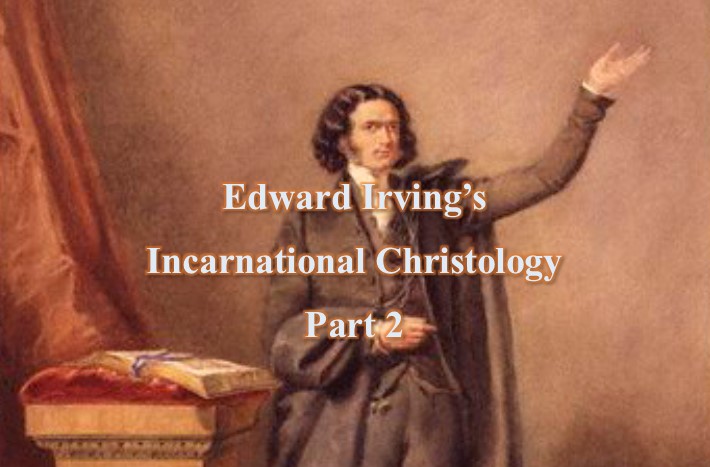Edward Irving’s Incarnational Christology, Part 2
Edward Irving’s Incarnational Christology: A Theological Examination of Irving’s Notion of Christ’s Sinful Flesh as it relates to the Fullness of the Incarnation
 This is the second of a three-part series by Trevor Martindale. He gives us an in-depth look at how Edward Irving, one of the 19th Century’s most important church leaders, understood the meaning of God coming in the flesh. What does that controversy have to teach us today?
This is the second of a three-part series by Trevor Martindale. He gives us an in-depth look at how Edward Irving, one of the 19th Century’s most important church leaders, understood the meaning of God coming in the flesh. What does that controversy have to teach us today?
Part Two: The Crux of Irving’s Christology
This chapter will expose the fundamental concept underlying Irving’s Christology. Our treatment should not be understood to be exhaustive of his Christology on the whole. However, special consideration will later be given to the relationship between the Incarnation and the Atonement within our task.
2.1. Orthodox Doctrine at Stake – Irving’s Christ as Sinner?
Before one can examine Irving’s views in any depth, it is necessary to first make note of the key theological presuppositions that surrounded the historical controversy between the years of 1827 and 1833. Irving’s encounter with Henry Cole provides a well-summarised glimpse into the theological issues that influenced the parameters of the controversy. The importance of this encounter should not be overlooked, as most who have written on this topic have inserted the encounter in their examination of the controversy. Yet very few have analysed the details of the theological presuppositions present within the conversation. We find this as sufficient reason for examining the theological issues pertinent to their confrontation, as follows:
My address and questions, and your answers, were as follows: ‘I believe, Sir, a considerable part of the conclusion of your discourse this evening has been upon the Person and Work of Jesus Christ.’ You answered in the affirmative. – I added, ‘If I mistake not, you asserted that the human body of Christ was sinful substance.’ You replied, ‘Yes I did.’ – I continued, ‘But is that your real and considerate belief?’ You answered, ‘Yes it is, as far as I have considered the subject.’ And here you produced a book, which I believe was some national confession of faith, to confirm your faith and assertions: in which you pointed out to me these words, (if I mistake not,) ‘The flesh of Jesus Christ, which was by nature mortal and corruptible.’ – Upon which I continued with amazement, ‘But do you really maintain, Sir, that the human body of Jesus Christ was sinful, mortal and corruptible?’ You replied, ‘Yes, certainly. Christ (you continued) did no sin: but his human nature was sinful and corrupt; and his striving against these corruptions was the main part of his conflict.[2]
It is evident that issues contained within Irving’s assertion regarded the questions of whether his body was mortal and corruptible. Before Cole had heard about Irving, he had authored a tract positing a theory that the incarnate body of Christ was inherently immortal, incorruptible and without any taint of sin.[3] The foundation for his belief was the presupposition that sin was totally absent from Christ’s body because “where there is sin, there must inevitably and unalterably be mortality: and where there is mortality, there must inevitably and unalterably be sin.”[4] The notion of Christ’s mortality was inconceivable for Cole as this could only be due to the defilement and pollution of sin within his body, which would in turn make him a sinner.


